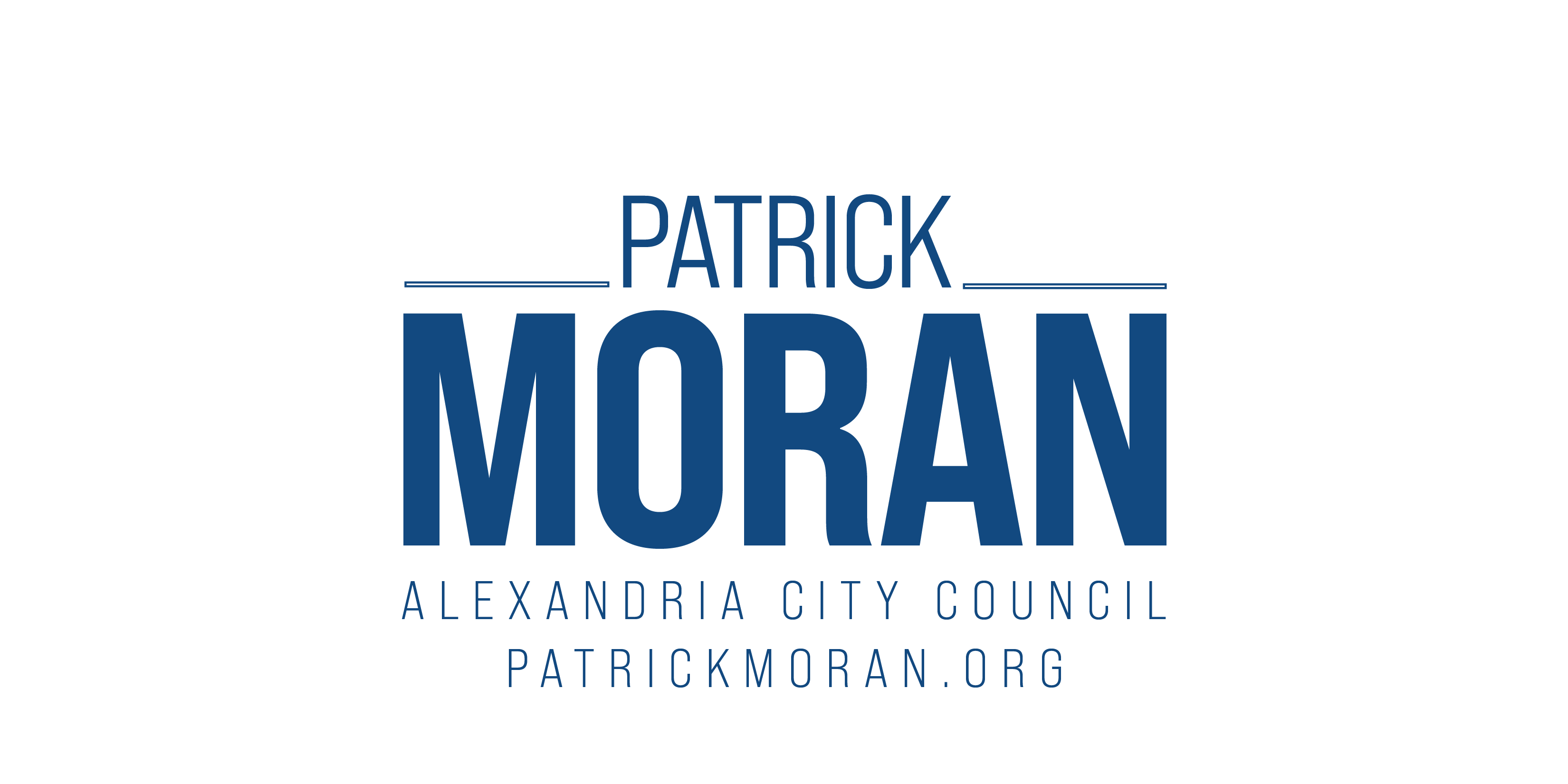Patrick joined the private Facebook group “Bring Integrity Back to Alexandria” at the request of several members after announcing his candidacy for Alexandria City Council. Since joining he has responded to policy questions from the group organizer and others.
Question:
Ethics Reform In 2016, Council adopted a watered-down ethics pledge after the Ad Hoc Code of Conduct Review Committee submitted recommendations to nurture an ethical culture in city hall. In the last 2 years, the City government has experienced serious ethical failures, including:Deliberately withholding information regarding safety discussions about the Seminary Road dietMisleading the public about plans to co-locate adult housing on school sites, initially blaming an errant contractorStacking City boards/commissions with hand-picked appointees who have actual, potential or the appearance of conflicts of interest in overseeing the conduct of City businessIf elected, will you support the appointment of an Ethics Commissioner to be empowered to oversee ethics matters in the City of Alexandria, including improved disclosures of matters that could affect decision-making, education and advisory opinions, and maintenance of a world-class ethical culture
Patrick’s Answer:
I appreciate the question.
What I have observed is more of a transparency and communication issue than an ethics issue, so I am not convinced that an ethics commissioner would fix what is a very real problem.
But major changes are called for because there is far too much divisiveness in our City.
One approach that might yield dividends would involve a greater investment in strengthening the role of our Civic Associations using Smart City technologies.
I believe Alexandria needs stronger, more inclusive Civic Associations. I also think our City staff might do more to foster, encourage, and strengthen the role of Civic Associations in the planning process. In conjunction with the use of technology, we can strengthen our Civic Associations’ ability to spend more time proactively influencing policy than reactively criticizing decisions they too often feel were made without sufficient community input. Communities that are more engaged in the initial planning processes might feel a stronger sense of ownership of changes affecting their communities instead of too often feeling as though the “higher powers from outside” are imposing unwanted changes that are of insufficient benefit to the affected neighborhoods.
Empowered with the data that the city possesses, we can create standards of inclusivity, participation, and civil discourse for ALL of our city’s neighborhoods. When thresholds are met, we can offer grants to help sustain necessary expenses to upholding that higher level of civic engagement. There is an excellent Harvard case study that speaks to the Civic Empowerment Gap across the country. It cites successes in strengthening civic participation. One such successful experiment involved integrating local issues into the high school’s civic class curriculum while encouraging students to become involved in their neighborhood association.This served as a mechanism for getting their families more involved in the ongoing local issues that might ultimately affect the quality of their lives. (https://dash.harvard.edu//Levinson)
How would these stronger civic associations influence policy? The first order of business would be to proactively review and offer amendments to our City’s many strategic plans, action plans, and small area plans. Currently, engagement with the community around the development of these plans is a fraction of what it could be, for a myriad of reasons. Yet, these plans are some of the most important policy documents our city has; they steer the efforts,the focus,the measurable “success” of our staff. They precede grants the staff pursues, consultants hired, investments made. This is the process that is determinative of policy. Currently,there is too little input into these original documents.
I realize this is not an easy task as a Council-appointed member and elected Chair of the Citizen Corps Council (CCC), an entity that is focused on coordinating volunteer efforts amongst preparedness organizations, I am continually reminded of how valuable but at times difficult, it can be to maintain consistent participation amongst volunteers. But it’s made easier as the issues at hand are closer to home. For this reason, a core tenet of the ResilientALX charter we are in the process of implementing requires direct engagement between and amongst strong Civic Associations.
Coupled with Smart City Technologies that provide real-time data on quality of life issues such as traffic, sewer/stormwater capacity, parking, air quality and energy use, we can ensure that Civic Associations have direct access to this information, real-time, so that they can issue recommendations proactively, rather than await staff reports.
Stronger Civic Associations inclusive of all residents will also add weight to a Civic Association letter of support or opposition to a particular issue. With quantitative data around engagement and inclusivity of a civic association, it will also enable the City government to better evaluate conflicting interests of businesses or other interest groups that are on the other side of an issue. With transparency will come increased democratization of our process.
We ought not to lose sight of the fact that the City of Alexandria is a corporation. Our Council is in essence, our board of directors. The City Manager is our CEO. Our residents are our clients and most important stakeholders. With technology and systematic responsibility, our neighborhoods can be and feel more empowered. I believe this approach might represent a way forward in fulfilling the vast potential that undergirds our City’s future.
